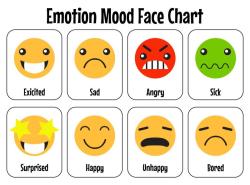Do clinical psychologists conduct research?
Yes, clinical psychologists often conduct research as part of their professional roles. Research is a significant component of clinical psychology, and it serves several important purposes:
Advancing Knowledge: Clinical psychologists engage in research to contribute to the body of knowledge in the field of psychology. They conduct studies to better understand the causes, development, and treatment of mental and emotional disorders, as well as factors that promote psychological well-being.
Evaluating Treatment Approaches: Clinical psychologists conduct research to evaluate the effectiveness of various treatment approaches and interventions. This research helps identify evidence-based therapies and informs best practices in clinical settings.
Developing Assessment Tools: They play a key role in the development and validation of psychological assessment tools and tests used for diagnosing and measuring psychological functioning. This includes tools for assessing cognitive abilities, personality traits, and mental health symptoms.
Studying Risk and Protective Factors: Research by clinical psychologists examines the risk factors that contribute to the onset of psychological disorders and protective factors that promote resilience and mental health. This knowledge informs prevention and intervention efforts.
Outcome Evaluation: Clinical psychologists may engage in research to assess the outcomes of psychological interventions and treatments. This helps in determining the effectiveness of therapeutic approaches and making necessary adjustments.
Contributing to Evidence-Based Practice: Through their research findings, clinical psychologists contribute to evidence-based practice in the field. They help bridge the gap between research and clinical application, ensuring that treatment methods are grounded in scientific evidence.
Participating in Multidisciplinary Research: Clinical psychologists often collaborate with professionals from other disciplines, such as medicine, neuroscience, social work, and education, in multidisciplinary research projects. This interdisciplinary approach can lead to a more comprehensive understanding of complex psychological issues.
Teaching and Supervision: Clinical psychologists who work in academic settings often teach research methods and supervise graduate students in conducting research. They play a crucial role in training the next generation of psychologists.
Overall, research is an integral part of the role of clinical psychologists, and it helps to inform and improve the practice of clinical psychology, leading to better outcomes for individuals seeking mental health services.
The Dual Role of Clinical Psychologists: Practitioners and Researchers
Clinical psychologists have a dual role as practitioners and researchers. This means that they both provide mental health services to clients and conduct research to improve the understanding and treatment of mental disorders.
Clinical Psychologists as Scientist-Practitioners: Balancing Research and Practice
Clinical psychologists who balance research and practice are known as scientist-practitioners. Scientist-practitioners use research to inform their practice and practice to inform their research. This dual role allows them to provide the most effective and up-to-date care to their clients.
The Comprehensive Focus of Clinical Psychology: From Research to Intervention
Clinical psychologists have a comprehensive focus, meaning that they are interested in all aspects of mental health, from research to intervention. This comprehensive focus allows them to provide the best possible care to their clients.
Clinical psychologists work in a variety of settings, including private practice, hospitals, schools, and universities. They provide a variety of services, including individual psychotherapy, group therapy, and psychological testing.
Here are some examples of how clinical psychologists use research to inform their practice:
- A clinical psychologist might use research on the effectiveness of different types of therapy to choose the best treatment approach for a client.
- A clinical psychologist might use research on the risk factors for mental disorders to develop prevention programs.
- A clinical psychologist might use research on the biological and psychological underpinnings of mental disorders to develop new treatments.
Here are some examples of how clinical psychologists use practice to inform their research:
- A clinical psychologist might notice a pattern in the symptoms of their clients and develop a research study to investigate that pattern further.
- A clinical psychologist might find that a particular treatment approach is effective for their clients and develop a research study to test that approach more rigorously.
- A clinical psychologist might develop a new assessment tool to help them diagnose mental disorders more accurately and conduct research to validate that tool.
The dual role of clinical psychologists as practitioners and researchers is essential to providing the best possible care to clients. By balancing research and practice, clinical psychologists can stay up-to-date on the latest findings in mental health and develop the most effective interventions.












